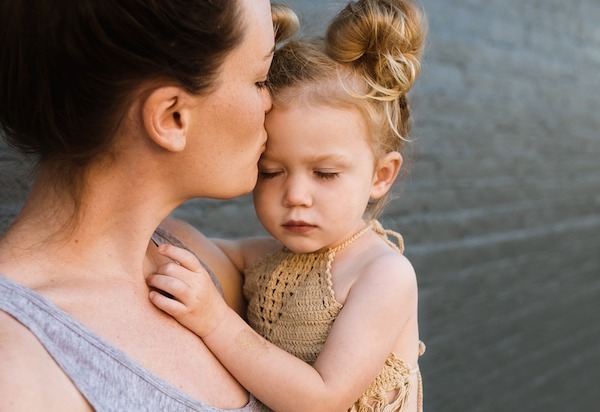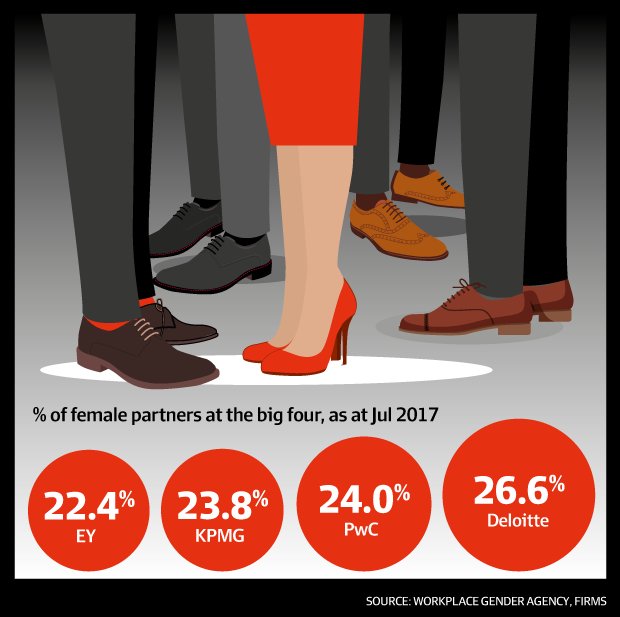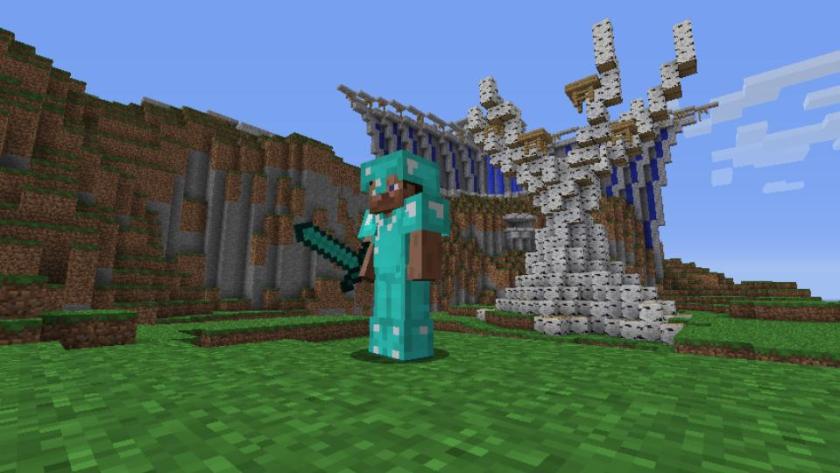The so called “motherhood penalty” is more deeply entrenched than I thought in Australia, and it’s getting worse.
According to the Diversity Council, which regularly produces a report looking at the drivers of the gender pay gap, the influence of years not working, i.e. career interruptions, usually related to the birth of children, has more than doubled since the Diversity Council first researched the drivers of the gender pay gap ten years ago.
What’s more, Australia has some of the highest part-time work rates for women in the world, according to the OECD. Only Switzerland and the Netherlands outrank us. And to round things out, 1 in 2 women report experiencing discrimination while pregnant, on maternity leave or when they return to work, and they are spending up to twice as much time on unpaid domestic housework as men.
I’m not telling anyone anything they don’t already know when I point out that over the course of a lifetime, this adds up to the ultimate “motherhood penalty”, with women retiring with on average half the superannuation as men. Older single women are the fastest growing group of people falling into homelessness.
https://womensagenda.com.au/business/31938/

Category: Inequity
“The struggle keeps you going”: Selma James,founder of International Wages for Housework Campaign, tal ks Trump, pay equity and more
When the Wages for Housework (WFH) campaign exploded onto the international feminist stage, it sparked the first debate on unwaged caring labour that women are forced into due to the social roles they are expected to perform. It demanded money from the State as compensation for the labour that was not merely a “role” that women were performing, but formed the backbone of the economy due to the physical and emotional investment made by women into housework.
“All I knew was that the basic weakness of women was that we did work that was unwaged and that payment for that work was absolutely central to our autonomy- to our right to have children and our right not to have children, to pay equity”, says Selma.
It was the 1972 seminal publication, The Power of Women and the Subversion of the Community, co-written with the feminist Mariarosa Dalla Costa, that first theorised housework and caring work as unwaged labour that women are forced to do; the very labour whose output supports the working class and through it, the market economy. Soon after, Selma James launched into praxis.
In fact, in May of 2015, the tongue-in-cheek Twitter hashtag #GiveYourMoneyToWomen went viral. Initiated by Lauren Chief Elk, it highlighted how women’s time and attention is often taken for granted, and suggested that if it were in such high demand, perhaps it deserved to be paid for.
https://www.eyeartcollective.com/the-struggle-keeps-you-going-selma-jamesfounder-of-international-wages-for-housework-campaign-talks-trump-pay-equity-and-more/
Why the move towards transparency will help shrink the gender pay gap
A shift is underway when it comes to the gender pay gap in Australia: opaque is on the out and transparency is creeping in.
This week two leading professional services firms, Ernst & Young and PwC, disclosed the pay gaps that exist between men and women in their respective organisations, for the first time.
The shift towards transparency follows the British government’s introduction, in 2017, of mandatory reporting of the pay gap in organisations that employ more than 250 people last year. The deadline for disclosure is the 4th April this year and around two-thirds of relevant employers have already complied.
It is a significant change because the historic lack of transparency around remuneration has long allowed the pay gap to flourish unchallenged. It has allowed the nebulous theory that the pay gap is myth to continue. The clarity that actual numbers deliver nips that in the bud and brings accountability to the table.
https://womensagenda.com.au/latest/move-towards-transparency-will-help-shrink-gender-pay-gap/

gender and minecraft: console-ing passions
Playing Minecraft as a pacifist vegetarian is technically possible, but the game design generally rewards those players who murder animals for meat (e.g., meat staves off starvation longer than vegetables and bread)—put another way, players are rewarded for treating the landscape and everything on it as a resource ripe for harvesting by way of punching, stabbing, shooting, etc.
In the process of overcoming enemies and colonizing the land, the player character is elevated in their heroic status on the frontier. The land and trophy items that a player collects—diamond armor, Ghast tears, enchanted weapons, etc.—further serve to symbolize power, progress, and accomplishment.
In privileging Minecraft players who assimilate with the player character—as a weapon-wielding, diamond-mining, meat-eating machine—game designers at Mojang marginalize players who want to find other ways of surviving, community building, and playing with mobs that don’t align with a colonial paradigm.
https://feministgames.wordpress.com/2014/04/13/gender-and-minecraft-console-ing-passions-2014/

Oxfam sexual abuse scandal is built on the aid industry’s white saviour mentality
Now that the trickle of sexual abuse and exploitation revelations against British aid organisations has turned into a flood, much can be discerned by the language used: the way some of the alleged victims of Oxfam staff in countries such as Haiti are being described as “child prostitutes”, when people who have sex with children below the legal age of consent are, in fact, rapists.
In my experience, particularly in the aftermath of disaster, when foreigners are sometimes the only source of resources, women seek from them any help they can get. What’s emerging now is that handouts have been offered, allegedly, in exchange for sexual favours. It’s a transaction that is obviously unequal and exploitative.
[W]e have remained utterly uninterested in the thousands of incidents of UN peacekeeper sexual abuse that have emerged over the past decade, including a rape-for-food initiative in Central African Republic, a child-sexual-abuse ring in Haiti, regular sexual assaults of girls as young as 12 in Liberia, and other incidents whose depravity is hard to grasp, such as the time blue helmets are alleged to have tied up four young girls and made them have sex with a dog.
https://www.theguardian.com/commentisfree/2018/feb/20/oxfam-abuse-scandal-haiti-colonialism?
How guilt about housework is making women sick: work life balance
A new analysis of data from the International Social Survey Programme examines the link between working hours, household chores and physical health.
Women in 24 countries were asked to rate the amount of housework they did each day in terms of their perceived “fair share” and they also ranked their physical health levels, over a two-year period.
The study, published in the Sex Roles journal, shows that that women working long job hours are more likely to report decreased physical health and that this relationship is moderated by the hours and fairness perceptions of household labor.
The report concludes that how women feel about the distribution of housework really matters.
In the realm of domestic labour women reign supreme…and yet it is women who are becoming ill from the guilt when they perceive they are not doing enough?
https://womensagenda.com.au/latest/guilt-about-housework-is-making-women-sick/
UN Report: Big gaps for women’s empowerment but there’s a way to fix it
In New York, UN Women released it’s first flagship report today, examining pervasive gender gaps and discrimination globally. The report, “Turning promises into action: Gender equality in the 2030 Agenda for Sustainable Development” also includes key suggestions on how to shift gears and meet the promises outlined in the 2030 Agenda for Sustainable Development.
The Agenda outlined goals addressing greater peace, equality, and sustainability but such goals have met fierce obstacles with the rise of global conflict, exclusion and environmental instability As a result, women are experiencing significant hardships across many regions.
https://womensagenda.com.au/politics/big-gaps-womens-empowerment-theres-plan-action-says-un/
Van Badham calls Barnaby Joyce a ‘massive, staggering hypocrite’ on Q&A – video
Arizona bill would give unlimited free pads, tampons to female inmates
The Arizona Legislature is considering a bill that would provide incarcerated women with an unlimited supply of feminine hygiene products, including tampons, pads, cups and sponges.
Currently, incarcerated women automatically get 12 free padseach month. They must ask an officer if they need more and may possess up to 24 at a time. Unlike in other states, if they want tampons, they must buy them.
The average menstruation lasts two to seven days, according to Mayo Clinic, and happens every 21 to 35 days. Most hygiene-product companies advise changing a pad or tampon every four to six hours to prevent odor and infection.
If a woman has an average menstruation of five days and follows guidelines to change her pad or tampon every six hours, she would need 20 pads or tampons per period. Some women experience heavy menstruation and require more.
Separate from the health risks, a woman who doesn’t have enough pads or tampons will likely end up bleeding on her clothes.
Base pay for prisoners starts at $0.15 per hour, which means a pack of pads would require about 21 hours of work.
A 20-count box of Playtex Super Gentle Glide tampons is $3.99. So a woman who wants tampons and uses one box per period would have to work up to 27 hours to cover the cost of her own menstruation.
Sue Ellen Allen, who served seven years in Perryville, said officers can and do deny requests for more pads.
“The humiliation is really something you carry with you forever,” she said.
97% of childcare workers are female, but gender inequality not an issue??
This week the Fair Work Commission put an end to a five year battle by unions for a 35% pay increase for childcare educators.
The unions had been arguing that gender inequality is seeing such work undervalued.
But according to the Commission, gender inequality is not an issue. In dismissing the unions’ application, the Commission claimed they had failed to provide “any evidence whatsoever” that gender inequality was behind childcare work being undervalued.
That’s despite the fact 97% of childcare educators are female, and earning significantly less than the rest of the population. These workers take home an average $21 an hour, about half the average hourly wage in Australia. “You can earn more money working in a supermarket,” educator Kylie Grey told the ABC.
The ruling now looks set to see childhood educators going on strike on March 27 in order to demand the government help fund equal pay.
The below quote from Lisa is telling:
If educators all leave, what will we do as a country when there is no one left to care for the children? It may just be women’s work, but like all women’s work you sure as hell will notice when it is no longer done.





